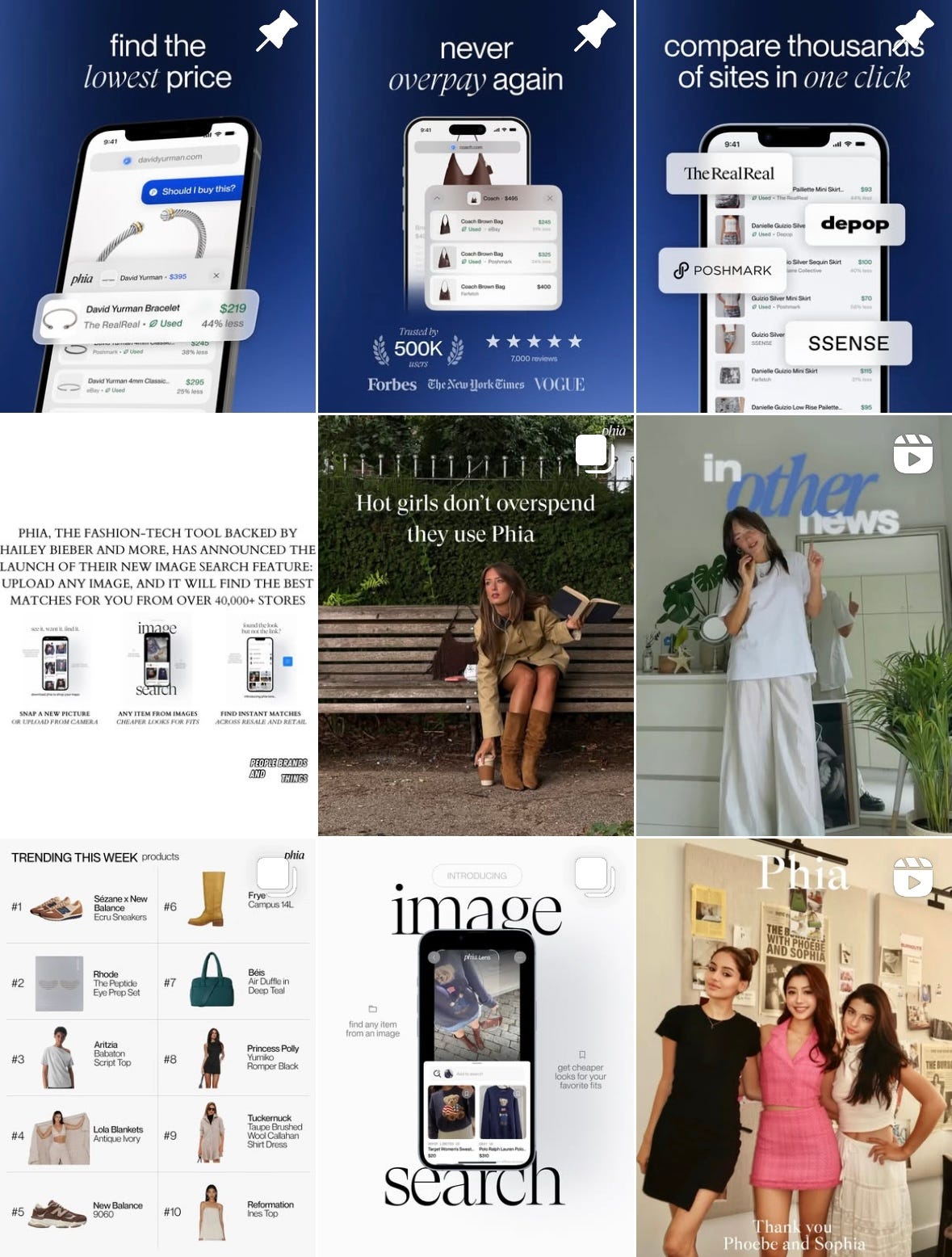Generation dupe
Plus the “new chill girls,” protests in Madagascar, and Instagram’s PG-13 mode.
Gen Z is not not spending. They’re just spending differently. With inflation still high and the cost of living climbing, this generation is redefining what “value” means. They’re savvy, discerning, and deal-obsessed. They’re still spending, just with their own flair of control, community, and curation.
The numbers: 82% of Gen Z consumers are seeking out dupes — “less expensive alternatives” — to full-priced items this season, according to PwC’s Holiday Outlook survey. That stat is one of many signaling a generational shift forward value-conscious luxury.
Here’s what that looks like:
80% wait to buy a product until it’s on sale
Only 21% consistently buy at full price
Gen Z’s hunt for discount codes has risen 14%
63% of Gen Z consumers are seeking out vintage or up-cycled products
61% wants to shop IRL > online, a 10-point jump from last year because that could help them “touch and see products,” “experience holiday displays and store atmospheres,” and “chase promotions”
When it comes to spending less this season:
51% plan to cut back on dining out or takeout
33% on clothes
29% on alcohol
28% of events or outings
28% on high value items
27% on streaming services
The context: Once upon a time, buying a knockoff was whispered about, gate-kept, even shameful. Now it’s content.
Just as TikTok and Instagram Shop, ShopMy, or LTK have revolutionized the consumer experience, we’ve seen a rise in dupe culture. Dupes go viral. From generic flip flops mimicking The Row, to myriad copies of Bottega earrings, Celine Triomphe sunglasses, and even fake Labubus (affectionately renamed “Lafufus,”), dupes are the manifestation of Gen Z’s financial pragmatism. Retailers have taken note, too. Many are playing into the fact that young consumers want pieces that evoke the spirit of luxury without the markup, or the environmental cost.
The Up and Up’s take: The dupe hunt is more a subtle protest against the illusion of exclusivity that it is about affordability. Gen Z is discerning, only willing to spend when it feels worth it, and not willing to to be up-charged for something they can find elsewhere.
They’re shameless, and for good reason. Buying a knockoff version of a designer product was once kept hush hush and the best versions were gate-kept. Today, that decision (and the exact version) is broadcast far and wide for all to benefit.
Startups are betting on this mindset. Phoebe Gates and Sophia Kianni’s ‘Phia’ is an online marketplace that scours the internet to help users find high quality luxury items at the best price. Billed as “Google flights for fashion,” it just raised an $8 million seed round.
This generation takes pride in their ability to score a deal, often choosing vintage or pre-loved items that sell for less than buying directly from the brand itself.
Everything’s online, everything’s for sale, and everything looks just close enough to be the real thing. When nothing is affordable and everything is attainable, why wouldn’t you just buy the dupe?
Other news…
Gen Z protestors in Madagascar drove their president out of the country
Instagram launched a PG-13 mode
The rise of the “new chill girl”
Noteworthy reads
What if SportsCenter and LinkedIn Merged?, Mike Isaac for The New York Times
Goldman economists on the Gen Z hiring nightmare: ‘jobless growth’ is probably the new normal, Nick Lichtenberg for Fortune
Strava eyes IPO as Gen Z trades dating apps for running clubs, Connie Loizos for TechCrunch
The ‘Womanosphere’ Is Reshaping the Conservative Dating Landscape, Jason Parham for Wired



Thank you been waiting for your column Rachel.